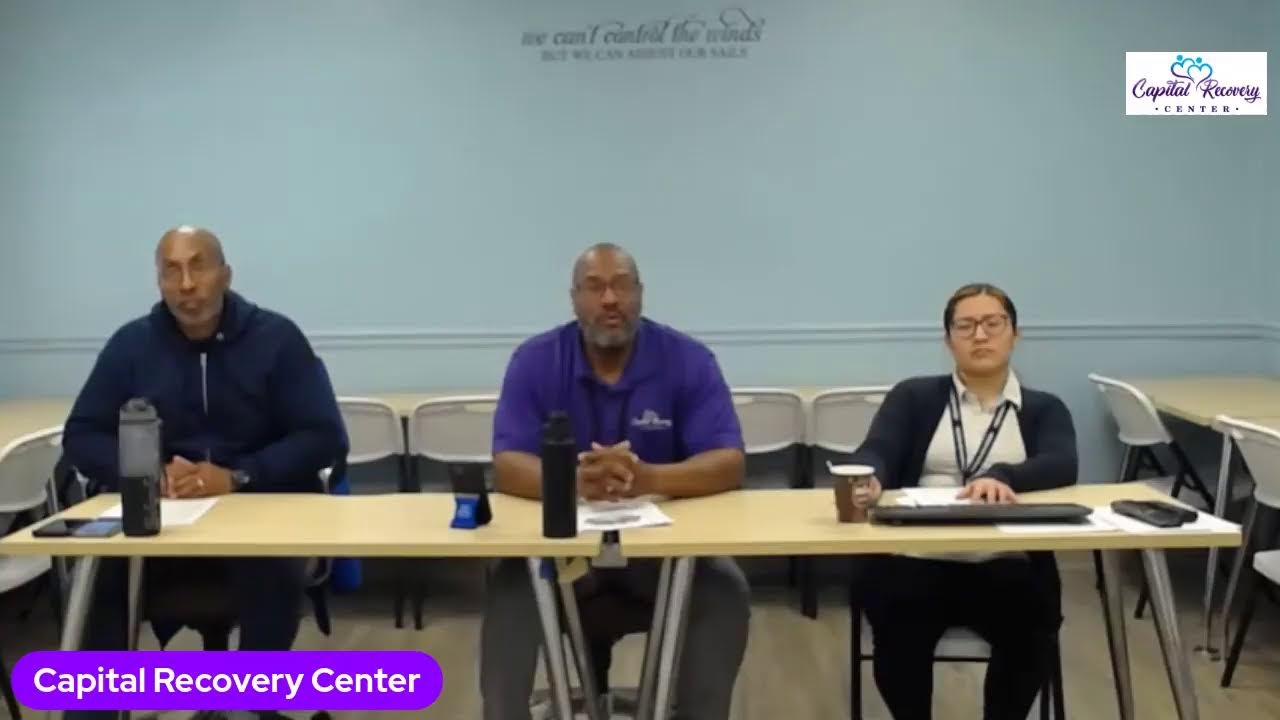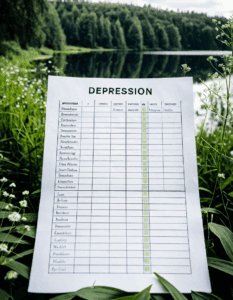Understanding the Importance of Building a Sober Network
Navigating the treacherous waters of addiction recovery can be overwhelming and isolating, but building a sober network can be the anchor that stabilizes and sustains an individual’s journey. This network, also referred to as a “sober support network,” provides much-needed emotional support, accountability, and the sense of belonging essential to resist relapse and foster long-term sobriety. Research indicates that people with strong social support systems are significantly more likely to achieve and maintain sobriety. According to the CDC, individuals with robust support networks are more successful in their recovery compared to those who try to go it alone.
Top 7 Strategies for Building a Strong Sober Network
1. Joining Support Groups Like Alcoholics Anonymous (AA)
Alcoholics Anonymous (AA) is one of the most renowned support networks for those battling alcohol addiction. With over 2 million members worldwide, AA provides a strong community where individuals can share their experiences, gain insights, and receive positive reinforcement in their recovery journey. Similar groups such as Narcotics Anonymous (NA) and SMART Recovery offer structured support tailored to various addictions.
2. Engaging in Group Therapy
Group therapy provides a supervised environment where individuals can discuss their struggles and progress. Unlike informal support groups, group therapy sessions are usually facilitated by a licensed therapist who steers the conversation and ensures productive, respectful exchanges. This structured setting helps participants connect with others while gaining professional insights into their own behaviors.
3. Leveraging Online Communities
In today’s digital age, building a sober network has transcended geographical boundaries. Platforms like Reddit’s r/StopDrinking or r/OpiatesRecovery bring together thousands of users who share their stories, advice, and encouragement. These virtual communities operate around the clock, providing continuous access to support and information vital for those in isolated areas or different time zones.
4. Connecting Through Sober Living Homes
Sober living homes offer a transitional environment for individuals recovering from addiction. Establishments such as Oxford House or Ethan ‘s Crossing provide residents with a substance-free living space and built-in support systems. Here, residents can create lasting bonds with peers on similar recovery paths.
5. Utilizing Mobile Apps for Continuous Support
Mobile apps like Sober Grid and Reframe keep individuals connected to their sober networks regardless of their location. These apps feature meeting locators, sobriety trackers, and peer support messaging systems, all designed to maintain user engagement and accountability in their sobriety journey.
6. Incorporating Family and Friends
Involving family and friends can significantly enhance recovery outcomes. Educating them about the nuances of addiction and recovery enables them to become effective supporters. Al-Anon and Nar-Anon Family Groups are excellent resources for helping loved ones learn how to support without enabling addictive behaviors.
7. Participating in Recreational and Wellness Activities
Engaging in activities like yoga, art therapy, or joining a sports league offers both physical and mental health benefits. Organizations like Phoenix Multisport create supportive communities focused on health-oriented activities, promoting an active lifestyle and allowing recovering individuals to build new, sober relationships.
| Category | Description | Examples | Actions/Strategies |
| Family Members | Family members provide a foundational support system for someone in recovery. | Parents, siblings, spouses | Regular family dinners, attending therapy sessions together, family check-ins |
| Friends | Friends can offer emotional support and shared activities that do not involve alcohol or drugs. | Close friends, sober buddies | Engaging in sober activities, celebrating milestones, consistent communication |
| Professionals | Certified experts who provide guidance, counseling, and medical support. | Therapists, addiction counselors, medical doctors | Regular therapy sessions, medical check-ups, progress reviews |
| Support Groups | Groups of individuals with shared experiences who meet regularly to offer mutual support. | AA (Alcoholics Anonymous), NA (Narcotics Anonymous) | Attending meetings, sharing experiences, 12-step programs |
| Community Resources | Local resources and organizations offering support and activities for sober living. | Community centers, religious organizations, sober events | Participation in community events, volunteering, using community services |
| Online Support | Digital platforms providing resources, forums, and virtual support meetings. | SoberGrid, online forums, virtual AA meetings | Joining online groups, participating in forums, attending virtual meetings |
| Action | Description | Example Activity | |
| Regular Check-ins | Consistent communication to show support and monitor progress | Weekly phone calls, text messages, coffee meetings | |
| Celebrating Successes | Recognizing and celebrating milestones and achievements in sobriety | Congratulatory messages, small rewards, social celebrations | |
| Offering Emotional Support | Being available to listen and provide comfort during challenging times | Active listening, encouraging words, empathy | |
| Attending Public Events | Showing up at events or activities that the individual is involved in | Sober concerts, group meetings, community events | |
| Thoughtful Messaging | Reaching out with supportive messages during tough times | Handwritten letters, supportive texts, care packages | |
| Shared Activities | Engaging in activities that do not involve substance use | Hiking, movie nights, fitness classes | |
| Referral to Resources | Connecting the individual with additional professional help when necessary | Recommendations for therapists, support groups |
Real-Life Examples of Successful Sober Networks
Case Study 1: The Impact of Online Communities
John, a 35-year-old recovering alcoholic, found challenges in attending AA meetings due to his rural location. By engaging in the Reddit community r/StopDrinking, John maintained daily contact with others in recovery. He received immediate feedback and celebrated milestones with people who truly understood his journey.
Case Study 2: Sober Living Homes as Catalysts for Long-Term Sobriety
Linda, a 28-year-old recovering from opiate addiction, benefitted significantly from her stay at Oxford House. The peer-led home provided a safe living environment, and the sense of responsibility and belonging she felt was transformative. Today, Linda attributes her successful recovery to her time there.
Innovative Approaches to Expanding a Sober Network
Traditional strategies for building a sober network are effective, but innovative approaches are emerging to further strengthen support networks. Virtual reality (VR) therapy, for example, is becoming popular as a tool to help individuals practice social interactions and coping mechanisms in a safe setting. Additionally, artificial intelligence integration in apps and wearable tech is helping to predict relapse triggers and suggest timely interventions.
The Power of Connection: Building Your Personalized Sober Network
Ultimately, the key to a successful sober journey lies in the strength and breadth of one’s support network. By proactively engaging with various forms of support—from traditional groups and therapy to modern online communities and apps—individuals can construct a resilient network tailored to their unique needs. This personalized approach provides not only a safety net but also propels one towards a fulfilling, sober lifestyle. Remember, you are not alone. Your sober network is out there, ready to help you every step of the way.
By utilizing these top strategies and innovative approaches, you can build a sober network that serves as a lifeline throughout the recovery journey. Embrace the power of connection, integrate a variety of supports, and experience the profound impact a sober support network can offer.
For more resources on building your sober network, visit Www.mothersagainstaddiction.org.
Building a Sober Network: Lifeline of Support
A sober network is a lifeline that offers essential support to individuals braving the storm of addiction. Building a sober network involves rallying around like-minded friends, family, and mentors who can offer unwavering support. It’s not so different from understanding a 30 year fixed mortgage rate chart – both require patience, commitment, and a long-term vision. Now, let’s dive into some riveting trivia and interesting facts about building a successful sober network.
Community and Faith-Based Approaches
Faith can anchor many through challenges. Faith-based recovery programs have been a cornerstone for countless individuals seeking solace and strength. Such programs create a solid foundation and integrate spirituality into the journey towards sobriety. Interestingly, did you know that many people compare choosing faith-based recovery to selecting the best 30 year fixed mortgage rates today? Both are decisions rife with commitment and planning.
The Role of Sponsors
Finding a sponsor is another critical piece of the puzzle. Much like Quinn Simmons surprising switch from road cycling to mountain biking, discovering the right sponsor can significantly shift one’s journey towards recovery. A sponsor, usually someone who’s walked the path of sobriety before, can provide the guidance, accountability, and support crucial for success. Did you know that, similar to sports celebrities like Drew Ruby blazing trails, sponsors often leave a lasting impact on their mentees’ lives?
Building Bonds and Personal Connections
Personal connections form the bedrock of a sober network. Just as cyclists like Quinn Simmons’ rely on their teams for support during grueling races, people in recovery depend on their sober network. These bonds, forged through shared experiences and understanding, provide the emotional horsepower needed to push through difficult times. Sometimes, your network could be as relevant and invaluable as understanding the “30 year fixed mortgage rates today” when making a significant financial commitment.
In essence, building a sober network isn’t an isolated effort. It’s a mosaic of support systems, personal connections, and faith-based recovery, much like analyzing a complex “30 year fixed mortgage rate chart” to make informed financial decisions. The journey to recovery is intricate, but with a robust network, it can become a journey of empowerment and hope.

How to build a sober network?
To build a sober network, connect with family, friends, and professionals who are supportive of your sobriety. Engage with groups or organizations dedicated to recovery, and participate in meetings or events where you can find like-minded individuals.
What is a sober network?
A sober network is a group of people who provide support and care to help someone maintain sobriety. This can include family members, friends, and professionals who understand the challenges of addiction and recovery.
How do I start a sobriety group?
Starting a sobriety group involves gathering a few individuals who are committed to staying sober and providing mutual support. You can meet regularly, either in person or online, to share experiences, offer encouragement, and hold each other accountable.
How do you build a supportive network?
Building a supportive network requires regular interactions and genuine care. Regular check-ins, celebrating achievements, and being there during tough times are essential. Attend events, send encouraging messages, and actively participate in each other’s lives.
How do sober people meet people?
Sober people can meet others through recovery meetings, support groups, sober events, and online communities. Attending regular gatherings and participating in social activities designed for sober individuals can help build connections.
How to make sober fun?
To make sober fun, explore activities that don’t involve alcohol or substances. Join hobby groups, participate in sports, go on outdoor adventures, attend cultural events, or host sober gatherings with friends.
What are the three pillars of sobriety?
The three pillars of sobriety are often considered to be maintaining physical health, nurturing mental well-being, and building strong support networks. These elements work together to create a balanced and healthy lifestyle in recovery.
What is the sober lifestyle trend?
The sober lifestyle trend focuses on living without alcohol or drugs, often for health, wellness, or personal growth reasons. It emphasizes the benefits of sobriety, such as improved health, better relationships, and a clearer mind.
What is a sober mindset?
A sober mindset involves adopting attitudes and behaviors that support a life free from alcohol and drugs. It includes being committed to sobriety, learning coping strategies, and maintaining a positive and proactive approach to life.
What are the 7 steps of sobriety?
The seven steps of sobriety typically include admitting the problem, finding support, detoxification, therapy, developing new habits, building a support network, and maintaining ongoing commitment and sobriety.
What is the Sinclair method?
The Sinclair Method is a treatment for alcohol use disorder that involves taking a medication called naltrexone before drinking. It helps reduce cravings and gradually decreases the person’s desire for alcohol.
What works better than AA?
What works better than AA might vary depending on the individual. Some alternatives include SMART Recovery, Cognitive Behavioral Therapy (CBT), and other professional treatment approaches that focus on different aspects of addiction recovery.
How to build a network from scratch?
Building a network from scratch involves reaching out to people who share similar interests and goals. Start by attending local events, joining clubs or groups, and participating in online communities related to your interests.
How to set up a network?
Setting up a network starts with identifying your goals and the types of connections you need. Reach out to potential contacts, attend relevant events, and create opportunities for regular interaction and mutual support.
How to build a support network in recovery?
Building a support network in recovery involves connecting with friends, family, and professionals who are supportive of your sobriety. Attend support groups, engage in sober social activities, and seek out resources that promote recovery.
How do you develop a sober lifestyle?
Developing a sober lifestyle means incorporating habits and activities that support a life free from alcohol or drugs. This includes healthy routines, finding new hobbies, building supportive relationships, and focusing on personal growth.
How do you make sobriety stick?
To make sobriety stick, find a strong support system, establish healthy routines, and set realistic goals. Stay committed to your recovery, seek help when needed, and celebrate your progress along the way.
How do you start a sober journey?
Starting a sober journey begins with acknowledging the need for change and seeking help. Find supportive resources, such as recovery groups or therapy, and commit to a plan that focuses on long-term sobriety.
How to get others to support your recovery?
Getting others to support your recovery involves communicating your needs clearly and asking for their understanding and assistance. Surround yourself with people who respect your journey and can provide encouragement and accountability.




























